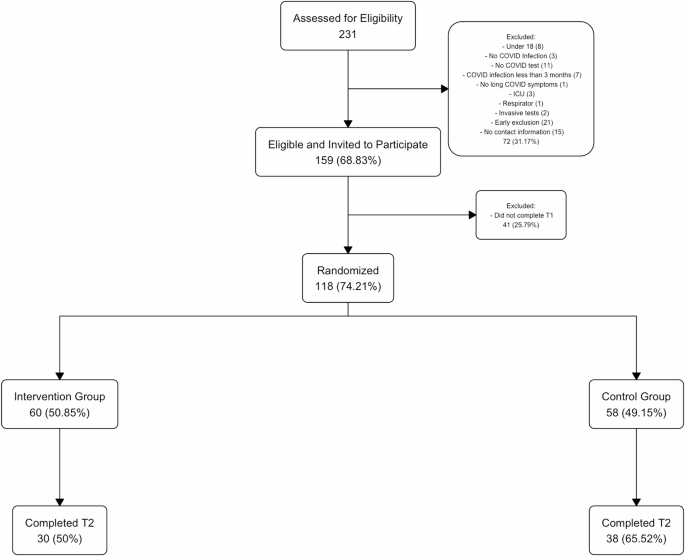rvallee
Senior Member (Voting Rights)
Awe reduces depressive symptoms and improves well-being in a randomized-controlled clinical trial

 www.nature.com
www.nature.com
Emerging evidence suggests that experiences of awe benefit health and well-being. The present investigation examined the efficacy of an awe intervention to improve the psychological health—stress, anxiety, depression, and well-being—of patients living with long COVID. The awe intervention, a Randomized-controlled Clinical Trial, was delivered in synchronous online sessions to patients, across the United States (in April 2023), who met the criteria for long COVID. Results revealed significant improvements in psychological health for those in the awe intervention (N = 30), compared to the control group (N = 38): including decreased stress, decreased depression symptoms, and increased well-being. There were no significant differences between groups in anxiety symptoms. Effect sizes ranged from medium to large (d = 0.78–0.96), demonstrating the robustness of these findings. This work is the first to document that awe can have salutary effects on psychological health, such as reducing symptoms of depression. These findings suggest that a brief awe intervention can improve psychological health in people dealing with chronic stress and physical ailments, as in the case of long COVID.

Awe reduces depressive symptoms and improves well-being in a randomized-controlled clinical trial - Scientific Reports
Emerging evidence suggests that experiences of awe benefit health and well-being. The present investigation examined the efficacy of an awe intervention to improve the psychological health—stress, anxiety, depression, and well-being—of patients living with long COVID. The awe intervention, a...
Emerging evidence suggests that experiences of awe benefit health and well-being. The present investigation examined the efficacy of an awe intervention to improve the psychological health—stress, anxiety, depression, and well-being—of patients living with long COVID. The awe intervention, a Randomized-controlled Clinical Trial, was delivered in synchronous online sessions to patients, across the United States (in April 2023), who met the criteria for long COVID. Results revealed significant improvements in psychological health for those in the awe intervention (N = 30), compared to the control group (N = 38): including decreased stress, decreased depression symptoms, and increased well-being. There were no significant differences between groups in anxiety symptoms. Effect sizes ranged from medium to large (d = 0.78–0.96), demonstrating the robustness of these findings. This work is the first to document that awe can have salutary effects on psychological health, such as reducing symptoms of depression. These findings suggest that a brief awe intervention can improve psychological health in people dealing with chronic stress and physical ailments, as in the case of long COVID.
